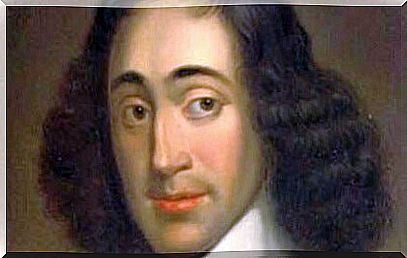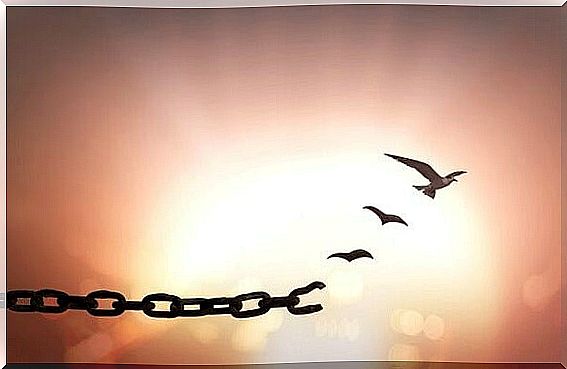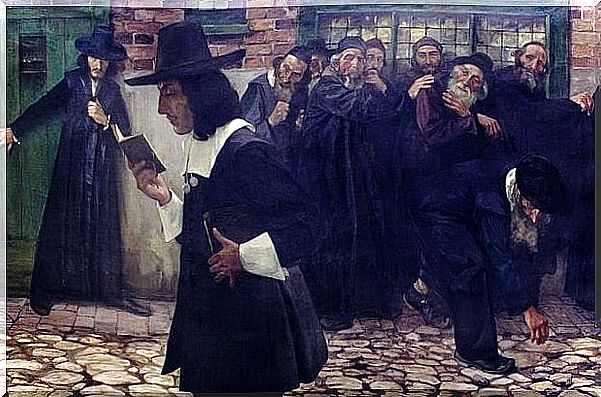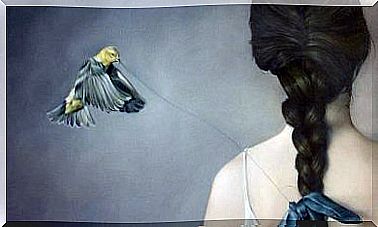7 Phrases Of Spinoza Full Of Lucidity

Spinoza’s phrases have that singular combination of simplicity and depth that only great intelligences produce. Many philosophers, such as Hegel and Schelling, considered him the father of modern thought. On the other hand, in front of these philosophers of such complex prose, their assertions are clear and understandable.
Baruch Spinoza was born in Amsterdam in 1632. His Jewish family was persecuted for generations. We have references from his exoduses from Spain, Portugal and France. Only in Holland did they find an atmosphere that allowed them to settle and live in peace. Perhaps this explains why in Spinoza’s works and phrases the theme of religion occupies a central place.
The thing of this philosopher was not to propagate religious beliefs, but to question them. That is why he was expelled from Judaism. Several of his works were banned. It was his friends who after his death published much of the material he had written. Many of Spinoza’s phrases have an impressive lucidity that we still admire today. These are some of them.
One of Spinoza’s phrases about repentance
One of Spinoza’s phrases about repentance goes like this: “ I don’t regret anything. He who regrets what he has done is doubly miserable ”. By the seventeenth century, this phrase was completely revolutionary: many of his contemporaries would describe it as profane and offensive.
Let us remember that one of the basic pillars of Christianity is repentance. Today we see it in a very secular way, but in Spinoza’s time to speak of repentance like that was almost blasphemous. Today, these words invite us to reflect. Let’s think, with how much resentment and guilt do we walk?

The differences of thought
Spinoza was a freethinker ahead of his time. His were not dogmas , or prejudices, or unsupported beliefs. His liberal spirit gave his approaches a deep critical sense.
Hence, one of his phrases says: ” There is as much difference between heads as there is between palates. ” For this author, we all have the inherent quality of being and thinking differently. Therefore, it is necessary for the world to recognize and respect individualities, since imposing a single thought would be against nature.
Regarding what was said, Spinoza tells us: “Freedom of judgment must be granted, since it is a virtue and cannot be oppressed . ” This small statement in favor of diversity of thought did not have much acceptance among his contemporaries. At that time, truths without exceptions and unique and powerful reasons were highly appreciated.
The origin of freedom
Spinoza affirms the following: ” The most important activity that a human being can achieve is to learn to understand, because to understand is to be free. ” In that sentence is reflected one of the reasons why this Dutch philosopher has been considered one of the great rationalists of all time.
In this statement a transcendental value is given to freedom. Likewise, it is asserted that it is born of reason, of understanding. This is contrary to what prevailed in the culture of that time, when talking about freedom was suspect and rejecting religion as little less than an act of madness.

The good and bad
Spinoza marked a before and after, especially in the field of ethics. Quotes from him appear in works by Freud, Lacan or Foucault. His work so marked the Western spirit that much of what is postulated today has some of its roots in this Dutch philosopher.
Another of his statements states: ” We do not want something because it is good, but vice versa, we say that something is good because we want it. ” In this sentence the ethical theory of Spinoza appears. For this great thinker there are neither good nor bad acts in themselves, but they are mere elaborations of the human being. In this sense, humanity determines actions morally based on its own wishes.
For example, if human beings desire peace, then actions to achieve it could be judged as morally good. In a sense, we see how this has been fulfilled throughout history, where the laws or ethical precepts have changed depending on the spirit of the time.
Another of Spinoza’s phrases that clearly reflect his ethical position is the following: ” Sin cannot be conceived in a natural state, but only in a civil state, where what is good or bad is decreed by common consent.”

God and ignorance
If Spinoza’s work was banned and hidden for almost a century, it is because he treated the subject of God with a renewed vision that did not go down very well in the most powerful and dogmatic circles of his time. He managed to make a distinction between religion and reason, something that was not very well seen by those who wielded religious power.
One of Spinoza’s phrases states: ” Those who, when they are ignorant of one thing, resort to the will of God, go completely mad: a ridiculous way, without a doubt, of confessing their own ignorance. ” Although he himself was a deeply religious man, in this sentence he speaks of the existence of other forces, many of them under our control, to shape the future.
Baruch Spinoza had to face great ideological pressures of his time. Still, he never gave up trying to think freely and analyze everything independently. He died of tuberculosis at the age of 44. His only possessions were two beds, two tables, a lens-polishing kit, and 150 books.









